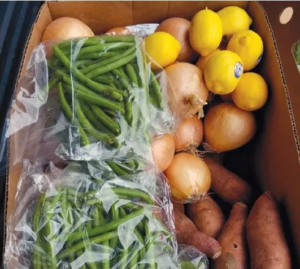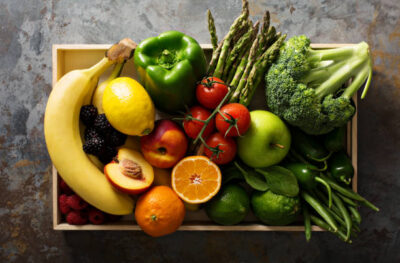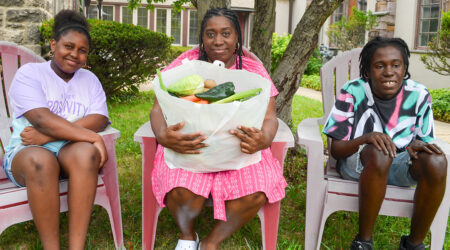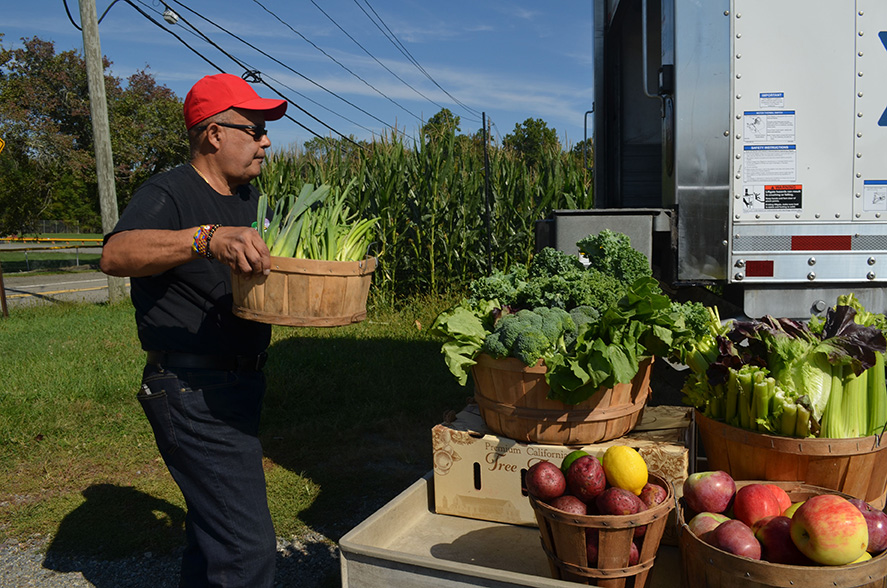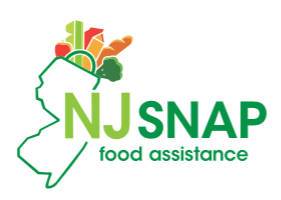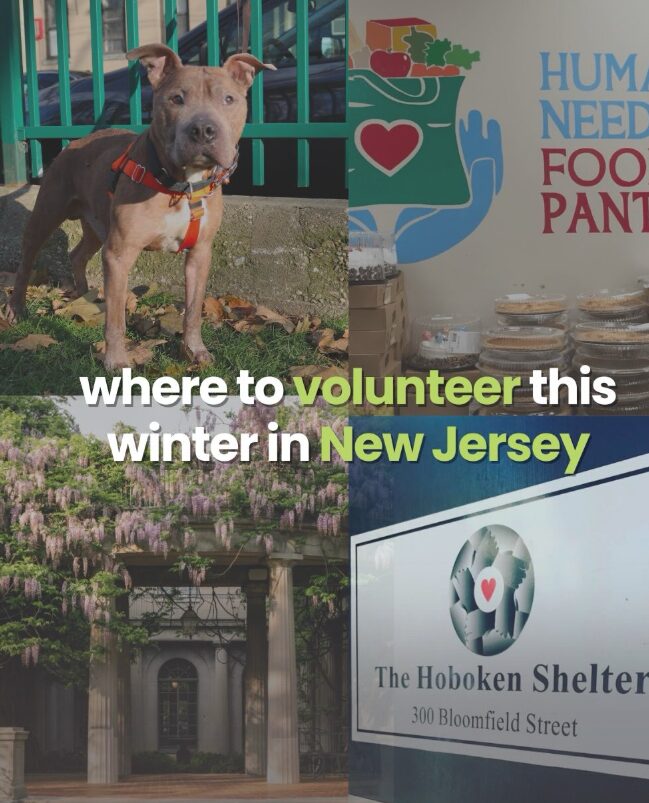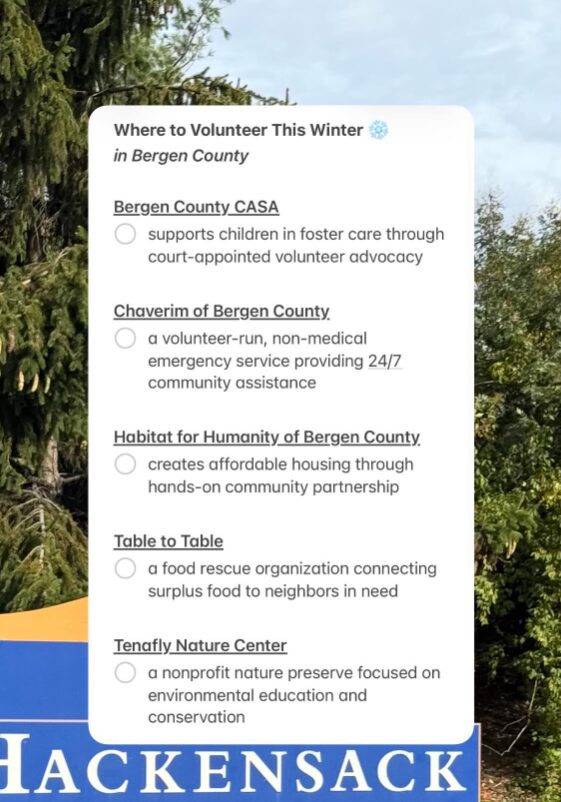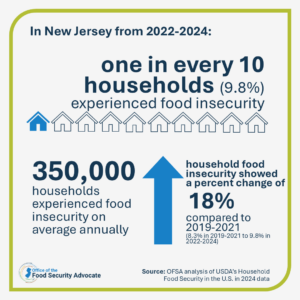March is National Nutrition Month. Creating a nutritious, balanced plate doesn’t have to be complicated. In fact, one of the simplest — and most impactful — changes you can make is to fill half your plate with fruits and vegetables. Not only does this add color, flavor, and texture to your meals, but it also boosts your intake of vitamins, minerals, and dietary fiber, the Academy of Nutrition and Dietetics said.
Of the 25 million pounds of food we rescued in 2025, 57% was produce.
A great daily goal is to aim for 2 cups of fruit and 2½ cups of vegetables, according to the academy. If that sounds like a lot, don’t worry — there are plenty of easy (and tasty!) ways to get there. Here are 20 simple ideas to enjoy more fruits and vegetables throughout your day.
20 Easy Ways to Eat More Fruits & Vegetables
1. Load up your pizza with veggies.
Broccoli, spinach, peppers, tomatoes, mushrooms, and zucchini all make flavorful pizza toppings.
2. Blend a fruit-packed smoothie.
Combine low-fat milk with frozen fruit like strawberries, bananas, mango, pineapple, or peaches for a refreshing breakfast.
3. Wrap it up.
Try a whole-wheat tortilla filled with roasted vegetables and a sprinkle of low-fat cheese.
4. Crunch smarter.
Swap chips for crunchy vegetables with low-fat dressing or hummus for dipping.
5. Grill veggie kabobs.
Skewer colorful veggies like tomatoes, peppers, onions, and mushrooms.
6. Brighten up your salads.
Add carrots, grape tomatoes, mandarin oranges, or spinach leaves for extra color and nutrients.
7. Keep cut veggies ready to go.
Perfect for snacking, lunch boxes, or quick sides. Try peppers, broccoli, cauliflower, carrots, cucumbers, snap peas, or radishes.
8. Make fruit irresistible.
Place a bowl of fresh, ripe fruit in a high-traffic spot for on‑the‑go snacking.
9. Get saucy.
Blend apples, berries, peaches, or pears into a sweet fruit sauce for seafood, poultry, pancakes, waffles, or French toast.
10. Veggie‑packed omelets.
Stuff your omelet with peppers, onions, broccoli, tomatoes, squash, carrots, or spinach—and top with low-fat cheddar.
11. Power up your sandwiches.
Add sliced pineapple, apples, cucumbers, peppers, or tomatoes. You can also add cooked or raw veggies to tacos and wraps.
12. Start your morning with fruit.
Top cereal, oatmeal, yogurt, or waffles with fresh fruit.
13. Supercharge your baked potato.
Try topping it with beans and salsa, or steamed broccoli and low‑fat cheese.
14. Warm up with vegetable soup.
A cup of veggie soup makes a nutritious snack or lunch side.
15. Add veggies to everything.
Stir grated or chopped vegetables like zucchini, spinach, eggplant, or carrots into pasta dishes, casseroles, curries, stews, and soups.
16. Fruit for dessert.
Split a banana, add a scoop of low‑fat frozen yogurt, and sprinkle nuts on top.
17. Stock up on frozen vegetables.
They’re perfect for quick steaming or stir-frying.
18. Make salad the main event.
Use leafy greens and colorful veggies, and top with chickpeas or edamame and a low‑fat dressing.
19. Grill fruit for a warm treat.
Pineapple, peaches, and bananas caramelize beautifully on low heat.
20. Dip deliciously.
Try hummus with whole‑wheat pita, salsa with baked tortilla chips, fruit with low‑fat yogurt, or graham crackers dipped in applesauce.
As New Jersey’s first and largest food rescue, our mission is to reduce food waste and provide nourishment to our food-insecure neighbors throughout North Jersey. We rescue millions of pounds of fresh, surplus food annually that would otherwise be wasted and end up in landfills. This rotting food emits methane gas, which contributes to climate change. We deliver this food to partner organizations who support the nearly 1.1 million people struggling with food insecurity in New Jersey.
Together, we can reduce food waste in our home and make a positive impact on the planet. Every little bit of effort — no matter how small — leads to change.









